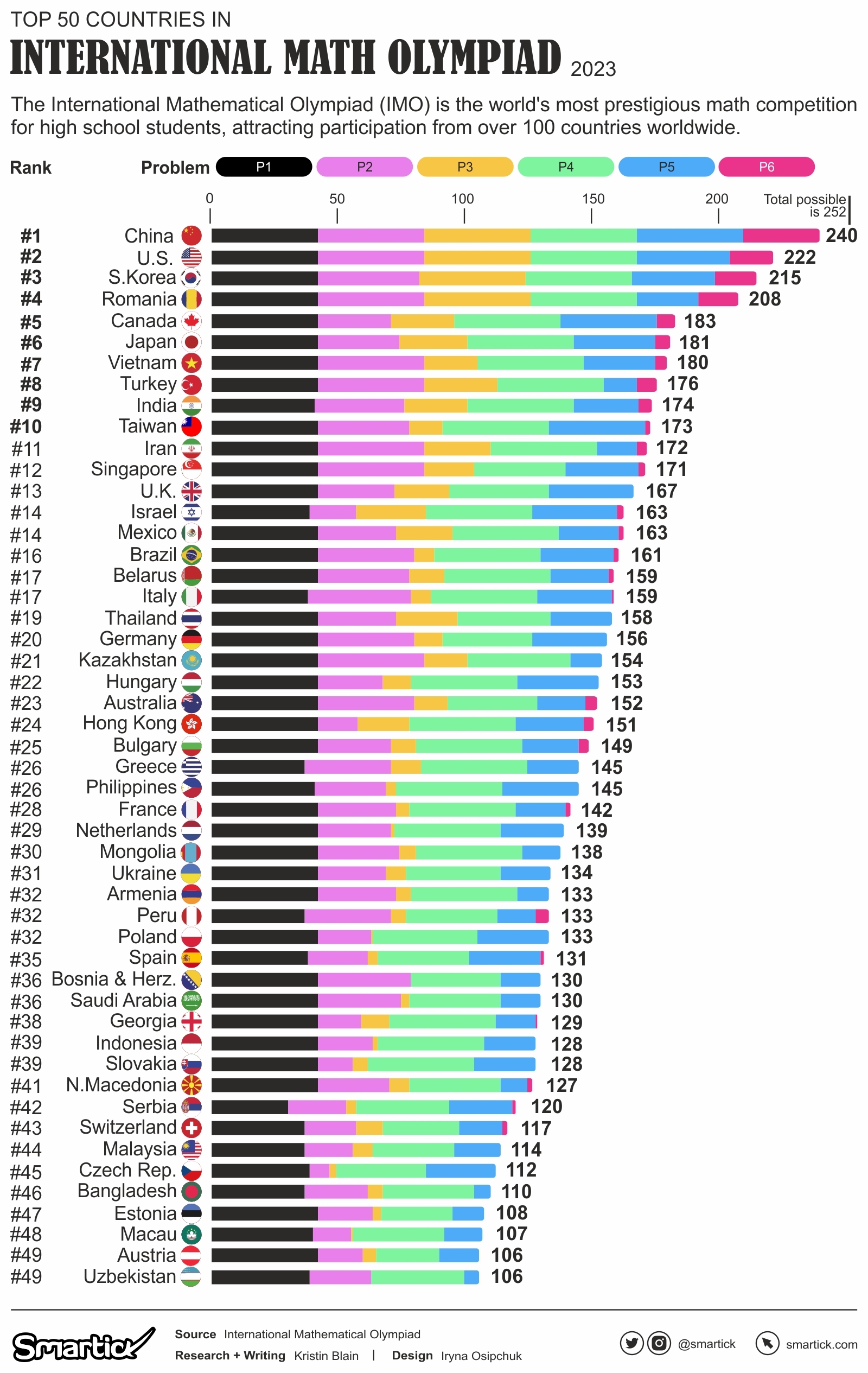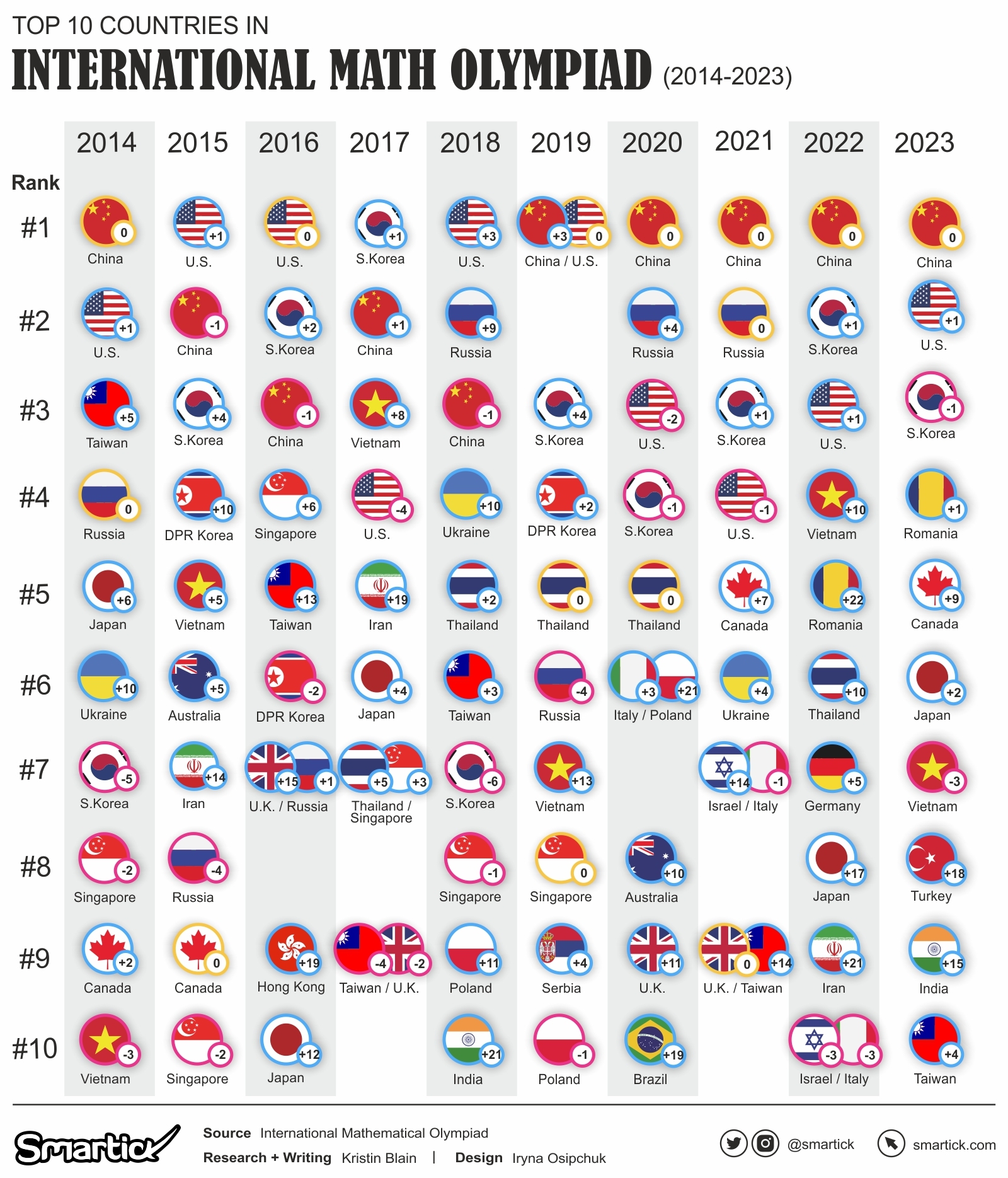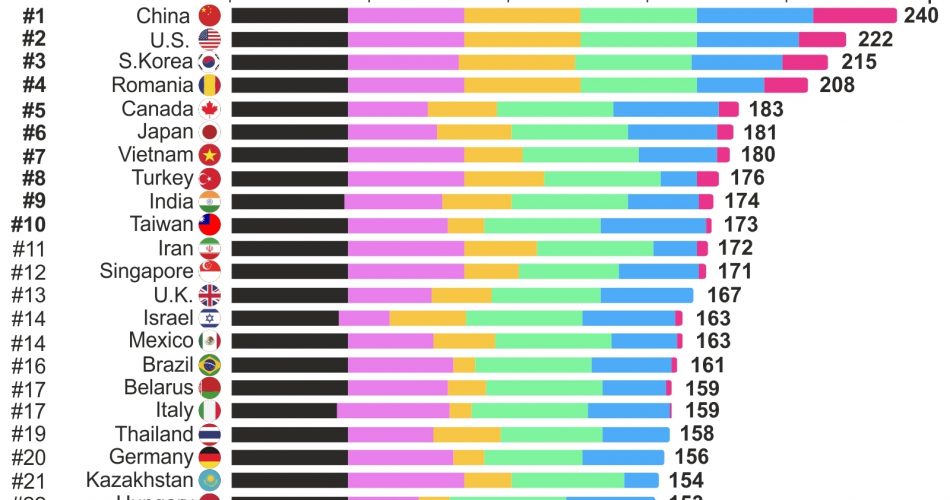
As the dust settles on the 2023 International Mathematical Olympiad (IMO), we find ourselves in awe once again at the exceptional brilliance displayed by the world’s top young mathematical minds. Hosted this year in a remarkable display of intellectual competition, the results are a fascinating insight into the world of competitive mathematics.

What is the International Mathematical Olympiad?
The International Mathematical Olympiad is a prestigious annual competition that showcases the extraordinary mathematical talents of high school students from around the world. Since its inception in Romania in 1959, the IMO has evolved into a significant event in the academic calendar, representing more than 100 countries worldwide. The two-day contest is designed to test participants’ problem-solving skills through six challenging mathematical problems. It’s not just about raw calculation power, but creativity, intuition, and the ability to devise and articulate complex proofs come into play.
The 2023 Olympiad, taking place in the vibrant city of Tokyo, Japan, saw young mathematicians converge to wrestle with complex equations and theorems. The participants vied for top honors, competing in a tense environment punctuated by flashes of insight, intense focus, and the thrill of problem-solving at the highest level.
Top 5 Countries in the International Math Olympiad
It’s fascinating to delve into the performance of the top teams, shedding light on how they fared on each problem. With a maximum score of 42 points per problem, the perfect score in the IMO is 252 points. Let’s unpack the achievements of the top five teams that have left a significant mark in this year’s competition.
1. People’s Republic of China
With an impressive score of 240 out of 252, the all-male Chinese team led by Liang Xiao stood first. The team excelled across all problems, with full scores on five problems and an almost perfect score on Problem 6, earning them 6 gold medals.
2. United States of America
The US team, under Po-Shen Loh’s guidance, secured the second spot with a total score of 222. They shone in the first five problems with full scores, but faced a challenge with Problem 6, acquiring 17 points. Their performance earned them 5 gold and 1 silver medal.
3. Republic of Korea
Securing the third spot, the Korean team led by Suyoung Choi, scored 215 points. They had full scores on Problems 1, 3, and 4, near-perfect on Problem 2, and faced more difficulty with Problems 5 and 6, earning them 4 gold and 2 silver medals.
4. Romania
With a commendable total score of 208, Romania, mentored by Cătălin Gherghe, secured fourth place. They solved the first four problems perfectly, found Problem 5 more challenging, and had a solid performance on Problem 6.
5. Canada
Under the leadership of Antonio Molina Lovett, the Canadian team scored 183 points and bagged fifth place. They achieved full scores on Problems 1 and 4, had a near-perfect score on Problem 5, and faced challenges with the remaining problems.
The Evolution of International Math Olympiad Rankings (2014-2023)
Over the past decade, from 2014 to 2023, the global arena has seen intense competition among countries across various sectors and industries. This visualization examines the global competitiveness rankings of countries over this period.

Since 2014, China has continually asserted its dominance, securing the top position for 6 out of the 10 years, with a brief interlude from 2015 to 2018 where it slipped to the second and third spots. By 2023, China has managed to recapture and retain its top position.
The United States, a long-standing economic powerhouse, had a fluctuating performance throughout the decade. It held the top spot in 2015, 2016, 2018 and 2019 but saw a steady decline in the subsequent years, ultimately settling in the second position by 2023.
Among the Asian economies, Taiwan, South Korea, and Japan showed impressive growth. Taiwan jumped from the 18th position in 2015 to the 10th in 2021 and has continued to improve. South Korea has consistently held positions within the top ten since 2014, while Japan, despite a dip to 25th place in 2021, managed to bounce back to the 6th position in 2023.
Meanwhile, Ukraine showed significant progress, climbing from 31st place in 2022 to 6th place in 2021, reflecting the country’s robust economic reforms and strategic initiatives.
Singapore also made commendable strides, improving from the 24th position in 2022 to 12th by 2023. Vietnam, too, made a significant jump, moving from 20th place in 2018 to 7th in 2023, demonstrating the resilience and potential of these growing Southeast Asian economies.
Not all countries, however, were able to maintain or improve their standings. Notably, the Netherlands experienced a notable decline, plummeting from 13th place in 2014 to 40th in 2023. Similarly, Germany slipped from the 16th position in 2014 to the 20th in 2023, highlighting the intense competition and rapidly changing economic landscape.
In summary, the global competitiveness landscape from 2014 to 2023 has been dynamic and challenging, with countries continually jostling for dominance. As we look towards the future, the battle for the top spots promises to be a fierce one, spurred by rapid advancements in technology, economic growth, and innovative strategic initiatives.
What are the Benefits of IMO Olympiad for Kids?
Participating in the International Mathematical Olympiad (IMO) yields significant benefits that go beyond the thrill of competition. It helps broaden the intellectual horizons of the young minds, allowing them to delve into the captivating realms of complex mathematical problems. Such competitions provide students with a unique opportunity to push their cognitive boundaries, enhancing their problem-solving skills and stimulating critical thinking. The experience they garner from solving challenging problems expands their academic base and fosters academic excellence.
Moreover, the IMO plays a crucial role in shaping future mathematicians, scientists, and thought leaders by providing an international platform to demonstrate their mathematical prowess. The competition enables students to meet like-minded peers from around the globe, fostering an environment of mutual learning and appreciation for different problem-solving approaches. These connections could, in the future, lead to collaborations that push the frontiers of scientific and technological innovation.
Let’s Wrap Things Up
Finally, it’s important to note that nurturing a strong mathematical foundation begins at home. One of the most valuable resources available for this purpose is Smartick. An adaptive, online learning platform, Smartick is designed to help learners of all ages improve and strengthen their math skills. It presents a diverse range of problems and personalized solutions, offering a comprehensive learning experience tailored to the intellectual needs of each student. The platform goes beyond typical classroom syllabi, fostering critical thinking, problem-solving skills, and a love for learning. So why wait? Start your mathematical journey with Smartick today, and let it pave the way for your success in the world of mathematics and beyond.

